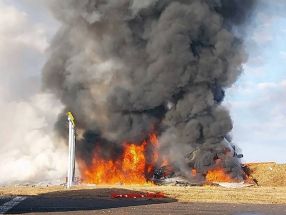Pope's apology doesn't change opinions on canonization
SAN FRANCISCO — Pope Francis' apology for the Roman Catholic Church's crimes against indigenous peoples has not softened opposition among some California Native Americans to his decision to canonize 18th-century Franciscan missionary Junipero Serra.
Serra is extolled by the Vatican as a great evangelizer, but denounced by some tribal officials as a destroyer of Native culture.
Francis made a sweeping apology for the church's sins and "crimes" against indigenous peoples during a visit to Bolivia in July, "humbly" begging forgiveness in the presence of Bolivia's first-ever indigenous president and representatives of native groups from across South America, who wildly cheered the pope and said they accepted the apology.
But Ron Andrade, a member of the La Jolla Indian Reservation, said the pope's apology is not a real reckoning with the church's history of abusing Native Americans and appears intended to seek forgiveness and move on.
Norma Flores, a spokeswoman for the Gabrieleno Band of Mission Indians, Kizh Nation, said the pope's apology is meaningless if he doesn't halt the canonization of Serra on Sept. 23 at Washington's National Shrine.
"Pope Francis has gone to South America and apologized," she said. "Yet he is going to canonize the individual responsible for the genocide of Native people."
The plan to elevate Serra to sainthood has sparked protests in California, where the priest's name is found on schools, street signs and public squares and is closely associated with the state's history.
Serra introduced Christianity and established settlements as he marched north with Spanish conquistadores through the land that would become California. In 1769, he established his first mission in San Diego. He would go on to found numerous additional missions, including San Francisco. The missions taught religion and farming.
But many Native Americans say the missions cut their ancestors off from their traditional languages and cultures, enslaved those who converted to Christianity and brought disease that led to the mass extermination of Indian populations.
Serra's treatment of Native Americans was controversial during his own life, said Steven Hackel, a University of California, Riverside history professor who has written a biography of Serra.
"The system he created, he should have known where it was headed," Hackel said, referring to the disease and death that would plague native populations on missions in the ensuing decades.
The Vatican has gone on the offensive to present Serra more positively as someone who protected Native Americans from colonial officials. Some historians say Serra saw the missions as refuges for Indians from unscrupulous soldiers and settlers. They say his support for flogging Native Americans reflected a paternalistic attitude that was common at the time.
"Father Junipero Serra was a very, very good person in a very, very bad situation, which I identify as colonialism," said Andrew Galvan, an Ohlone Indian who curates Mission Dolores in San Francisco and supports Serra's canonization.
Galvan said he is hopeful Serra's canonization will open up dialogue between missions and native peoples.
"We can't change what happened in the past. The church has admitted there were mistakes in the past," he said. "But we have a golden opportunity as a church today to reach out to native peoples and reconcile. That would be the miracle of Serra."
Archbishop Jose Gomez of Los Angeles, the highest-ranking Hispanic bishop in the US, said Serra's canonization had an altogether different significance:
"The first Hispanic pope is coming to America to give us the first Hispanic saint," the Mexican-born Gomez told a recent church-organized conference in Philadelphia. He called it an "historic moment in the life of the Hispanic people," where the pope would be calling on Hispanics across the country to reflect on their history, identity and "our legacy as immigrants."
Critics say they want action, not words. The pope should help Native Americans regain land they lost, Andrade said.
Flores wants the pope to start by visiting California and acknowledging a detailed list of what she says were the church's crimes. "We will never forgive or forget, but we need that in order for our wounds to heal," she said.
A visit to the state is not on the pope's itinerary.
The president of the California Catholic Conference, which represents the state's bishops, announced Friday that the bishops would revise the cultural displays at California missions and review the third- and fourth-grade curriculum in Catholic schools to better reflect the relationship between the missions and Native Americans. Jaime Soto, Bishop of Sacramento and the conference's president, said "the Indian experience has been ignored or denied."
- Latest
- Trending

































